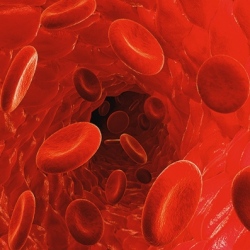
Mayo Clinic published about a drug combination that can slow and reverse senescent cells in mice. A leukemia drug dasatinib and the dietary supplement quercetin reduced senescent cells’ numbers, tamped down the inflammation they cause, and reduced the level of disability that comes with age-related diseases.
The drugs delayed age-related diseases. And the anti-aging effects of a single five-day course of the cocktail lasted for months, the equivalent in humans of more than a decade.
Giving dasatinib-quercitin combo in mice at the age equivalent of 75 to 90 years in humans let them live 36% longer with better physical function.
That extra lifespan did not come with an extra dose of misery either: In their final two months of life, the physical function of the treated mice was at least as good as that period in the lives of normally aging mice that died earlier. That was seen in tests of walking speed, grip strength and hanging endurance given to the animals in their last weeks and months of life.
Nature Medicine -Senolytics improve physical function and increase lifespan in old age
Physical function declines in old age, portending disability, increased health expenditures, and mortality. Cellular senescence, leading to tissue dysfunction, may contribute to these consequences of aging, but whether senescence can directly drive age-related pathology and be therapeutically targeted is still unclear. Here we demonstrate that transplanting relatively small numbers of senescent cells into young mice is sufficient to cause persistent physical dysfunction, as well as to spread cellular senescence to host tissues.
Transplanting even fewer senescent cells had the same effect in older recipients and was accom-panied by reduced survival, indicating the potency of senescent cells in shortening health- and lifespan. The senolytic cocktail, dasatinib plus quercetin, which causes selective elimination of senescent cells, decreased the number of naturally occurring senescent cells and their secretion of frailty-related proinflammatory cytokines in explants of human adipose tissue.
Moreover, intermittent oral administration of senolytics to both senescent cell–transplanted young mice and naturally aged mice allevi-ated physical dysfunction and increased post-treatment survival by 36% while reducing mortality hazard to 65%. Our study provides proof-of-concept evidence that senescent cells can cause physical dysfunction and decreased survival even in young mice, while senolytics can enhance remaining health- and lifespan in old mice
